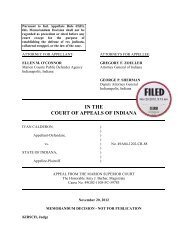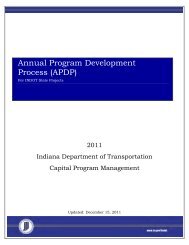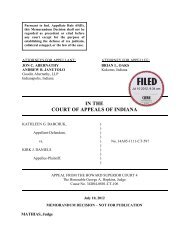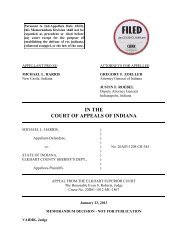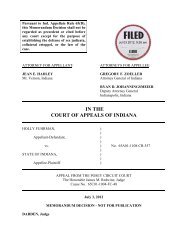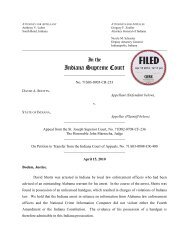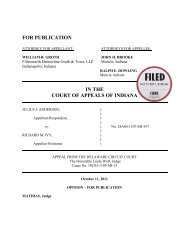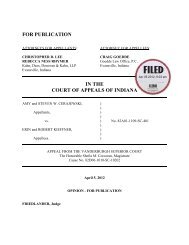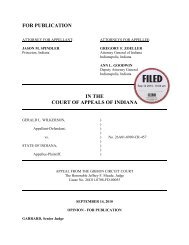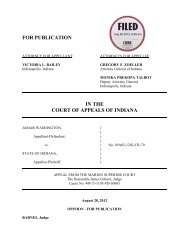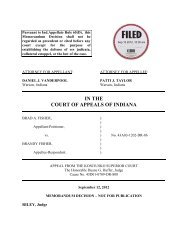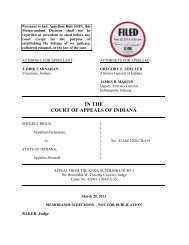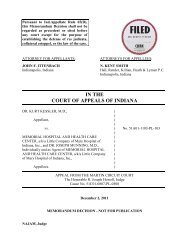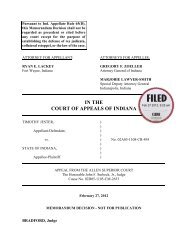Abby Allen and Walter Moore v. Clarian Health ... - State of Indiana
Abby Allen and Walter Moore v. Clarian Health ... - State of Indiana
Abby Allen and Walter Moore v. Clarian Health ... - State of Indiana
Create successful ePaper yourself
Turn your PDF publications into a flip-book with our unique Google optimized e-Paper software.
Our supreme court held that the contract did not oblige the l<strong>and</strong>lord to deal with its<br />
tenant in good faith:<br />
courts are bound to recognize <strong>and</strong> enforce contracts where the terms <strong>and</strong> the<br />
intentions <strong>of</strong> the parties can be readily determined from the language in the<br />
instrument. It is not the province <strong>of</strong> courts to require a party acting<br />
pursuant to such a contract to be “reasonable,” “fair,” or show “good faith”<br />
cooperation. Such an assessment would go beyond the bounds <strong>of</strong> judicial<br />
duty <strong>and</strong> responsibility. It would be impossible for parties to rely on the<br />
written expressions <strong>of</strong> their duties <strong>and</strong> responsibilities. Further, it would<br />
place the court at the negotiation table with the parties. In the instant case,<br />
the court would decide what is “fair” or “reasonable” concerning the<br />
advantage or disadvantage <strong>of</strong> control <strong>of</strong> the leased property. The proper<br />
posture for the court is to find <strong>and</strong> enforce the contract as it is written <strong>and</strong><br />
leave the parties where it finds them. It is only where the intentions <strong>of</strong> the<br />
parties cannot be readily ascertained because <strong>of</strong> ambiguity or inconsistency<br />
in the terms <strong>of</strong> a contract or in relation to extrinsic evidence that a court<br />
may have to presume the parties were acting reasonably <strong>and</strong> in good faith<br />
in entering into the contract.<br />
Id. at 604 (emphasis added).<br />
There is a material difference between the contract before the court in First<br />
Federal <strong>and</strong> the contracts in this appeal. In First Federal, the court applied the general<br />
rule that courts will enforce the plain language <strong>of</strong> an unambiguous agreement, <strong>and</strong> the<br />
court determined that the contract in question was unambiguous. Thus, the controlling<br />
factor was the court‟s determination that the contract before it was unambiguous. But our<br />
supreme court also noted an exception to the general rule. See id. When a contract is<br />
ambiguous, a court “may have to presume the parties were acting reasonably <strong>and</strong> in good<br />
faith.” Id.<br />
Here, the pricing provisions in the contracts are indefinite <strong>and</strong>, therefore,<br />
ambiguous. While no price or fee schedule is stated, according to <strong>Clarian</strong>‟s interpretation<br />
the contracts provide unconditional promises by patients to pay any amount for services<br />
16



